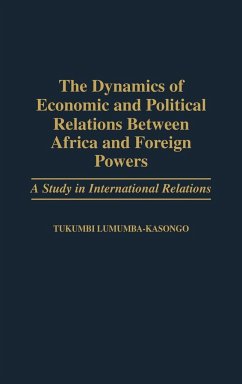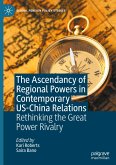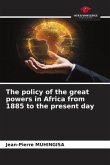International relations at large and Africa's in particular are shaped by the actors' historical location, by what they offer economically and culturally, and by who they are socially. In international relations nations tend to deal with objective conditions as they are or as they are perceived. However, Lumumba-Kasongo demonstrates through case-studies of Liberia and Zaire/Congo that what the objective conditions are may not necessarily be what they ought to be in the national development process. The international struggle for power between the West and the East and their supportive brutal and oppressive states in the South, especially in Africa, created the extremely weak conditions that redefined international relations as the tools of domination, rather than the tools of understanding and cooperation. As Lumumba-Kasongo clarifies, Africa did not gain economically or developmentally from this struggle. An important work for scholars and researchers of contemporary Africa and international relations in general.








